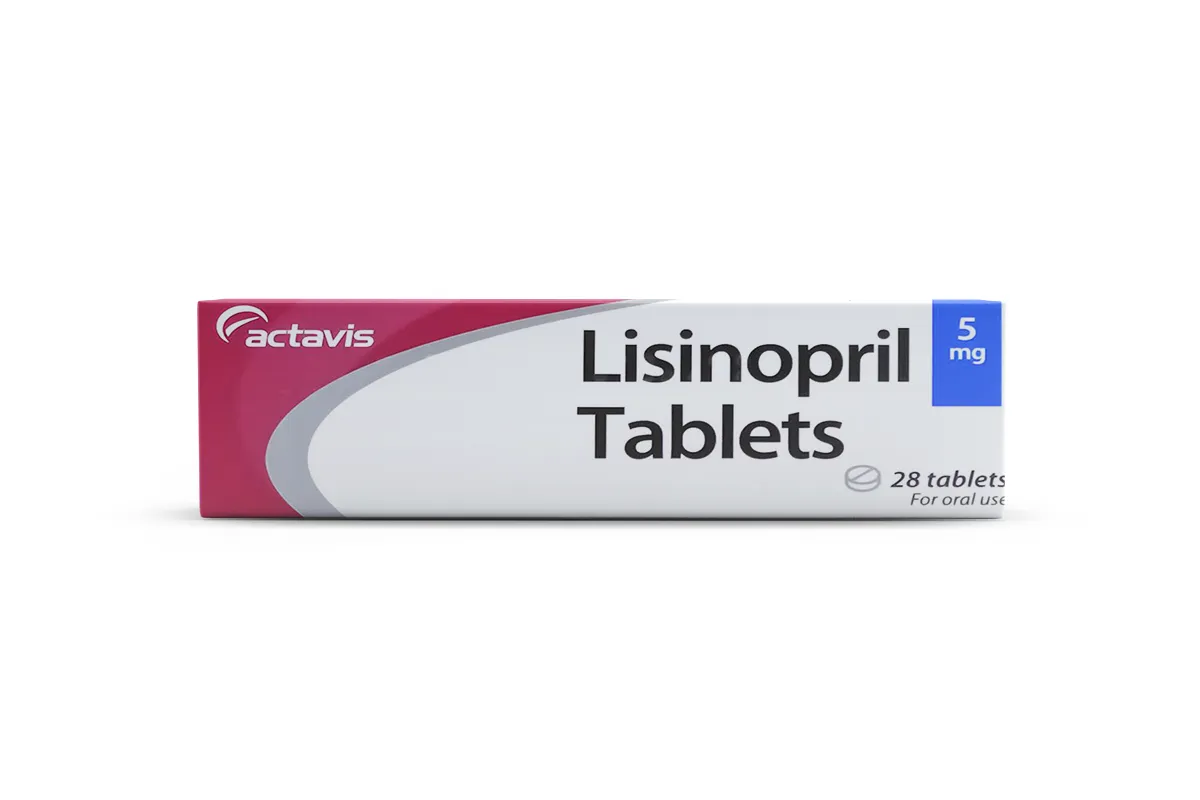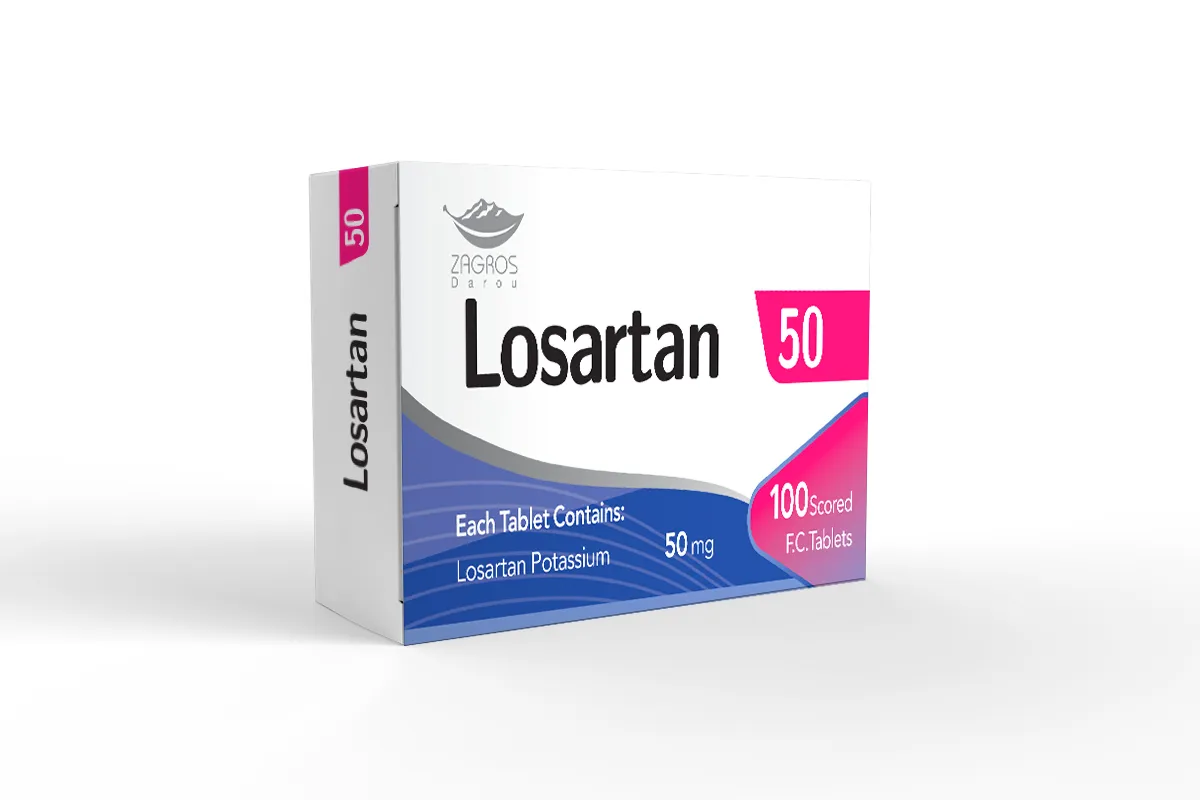Suggested Medicines
Lisinopril was first manufactured in the early 1980s by the pharmaceutical Company Merck & Co. It was approved by the U.S. Food and drug administration (FDA) in 1987 and became avalible as a generic in the 1990s.
Lisinopril is a prescribed medicine, which is available in brand names such as Prinivil, Zestril, and Qbraelis. It belongs to the drug class ACE inhibitors (Angiotensin Converting Enzyme Inhibitors).
A Brief On Lisinopril
Lisinopril is a prescription medication typically used to treat high blood pressure, heart failure, and for treatment after a heart attack. Lisinopril is belongs to a class of drugs called Angiotensin Converting Enzyme (ACE) Inhibitors.
Lisinopril (Zestril) is a prescription medication, so you must consult a doctor before purchasing. Some companies have healthcare professionals on their teams who can assess you before your purchase.
How Does Lisinopril Work?
As mentioned above, Lisinopril is a (ACE) inhibitor. It works by affecting the action of the ACE enzyme, which is responsible for converting angiotensin I to angiotensin II.
Angiotensin II is a hormone that narrows the blood vessels, which may increase blood pressure and make the heart harder to pump blood. By blocking the action of the ACE enzyme, Lisinopril helps to improve blood flow and reduces the workload of the heart.
Usages Of Lisinopril
Lisinopril has both on-label and off-label usage. On-label usages are those that are approved by regulatory agencies and are specifically listed on the drugs. Off-label usages are those that are not specifically approved by regulatory agencies but are still prescribed by doctors based on their clinical judgment and research.
Here are some examples of On-label and off-label usages of Lisinopril.
On-label usages:
- Treatment of hypertension (high blood pressure)
- Treatment of heart failure
- Improvement of survival after a heart attack
Off-label usages
- Treatment of diabetic nephropathy (kidney disease in people with diabetes)
- Prevention of migraines
- Treatment of left ventricular dysfunction (a condition in which the heart's left ventricle doesn't pump blood effectively)
- Treatment of scleroderma (a connective tissue disorder)
- Lisinopril for prevention of kidney damage in people with lupus
- Management of chronic cough
- Treatment of Alzheimer's disease (currently under investigation in clinical trials)
It's important to note that the off-label usage of Lisinopril without your doctor's advice may cause serious side effects, so it is only recommended when your doctor prescribes it.
Forms And Strengths Of Lisinopril
|
Forms |
Strengths |
|
Tablets |
2.5mg, 5mg, 10mg, 20mg, 30mg, 40mg. |
|
Oral solution |
1 mg/mL |
Dosages Of Lisinopril
For Blood Pressure
- Adults- 10 mg once daily. Your doctor may adjust your dose according to your need.
- However, you should not more than 40 mg in a day.
- Children- Your doctor must determine the proper use and dose.
For Heart Failure
- Adults- 5 mg once daily. Your doctor may adjust your dose according to your need.
- However, you should not more than 40 mg in a day.
- Children- Your doctor must determine the proper use and dose
For Immediate Treatment After A Heart Attack.
- Adults- at first, 5 mg once daily. Your doctor may increase your dose according to your need.
- Children- Your doctor must determine the proper use and dose.
Precautions To Be Taken For Lisinopril
Lisinopril is a prescription medication that should only be taken with the proper precautions.
Here are some precautions for Lisinopril:
- Allergies: if you have allergic to ACE inhibitor or any of the lisinopril ingredients, you should not take Lisinopril
- Pregnancy: Lisinopril is not recommended during pregnancy as it may harm the fetus. Women who are pregnant or planning to get pregnant should not take lisinopril without their doctor's consult.
- Kidney disease: Patients with kidney disease may need a lower dose of Lisinopril or avoid taking it altogether. Regular monitoring of kidney function may be necessary.
- Liver disease: patients with liver disease may need a lower dose of lisinopril or avoid taking it altogether.
- Low blood pressure: Lisinopril can cause low blood pressure, especially when the patient stands up from sitting or lying down. Patients should be careful when changing positions and notify their healthcare provider if they experience symptoms such as dizziness or fainting.
- High potassium levels: lisinopril can increase the potassium level in the blood, especially in patients with kidney disease or diabetes. Patients should have their potassium levels monitored regularly.
- Surgery: Patients scheduled for the operation should inform their doctor that they are taking lisinopril because it may interact with certain anesthesia medications.
- Other medicine: Informing the doctor about the medication you are currently using is important because it may interact with the lisinopril and cause side effects.
Side Effects Of Lisinopril
Like every medication, Lisinopril also has some side effects. Here are the common and serious side effects of Lisinopril
|
Common side effects |
Serious side effects |
|
|
Drug Interactions Of Lisinopril
Lisinopril may interact with other medications or substances. Which can affect the effectiveness of the medication and may cause serious health issues:
Some of the common medications that may interact with lisinopril include:
- Other blood pressure medications, such as beta-blockers or diuretics
- (NSAIDs), such as ibuprofen or aspirin
Lithium - Potassium supplements or potassium-sparing diuretics
- Insulin or other diabetes medications
- Antacids containing aluminum or magnesium
Can You Buy Lisinopril Online?
Yes, you can buy Lisinopril online through various online pharmacies, but a prescription from a certified healthcare provider is mandatory to buy Lisinopril Online from a legal pharmacy.
Many online pharmacies and websites sell Lisinopril without a prescription. These pharmacies and websites may be illegal and may sell fake Lisinopril or controlled substances, which may cause serious health issues. So buying Lisinopril from a certified pharmacy and websites with a proper prescription is essential.
There are many FDA-certified pharmacies where you can buy Lisinopril online without the risk of fake products.
Can You Get Lisinopril Over the Counter?
No, Lisinopril is the prescription medication unavailable over the counter. A proper prescription from a certified doctor is mandatory for buying Lisinopril.
However, in some countries, Lisinopril may be available over the counter without a prescription. It is best to check with your local pharmacy or healthcare provider to determine if Lisinopril is available over the counter in the US.
Conclusion
Lisinopril is prescribed to treat high blood pressure, heart failure, and for treatment after a heart attack.
Lisinopril is an (ACE) inhibitor. It relaxes the blood vessels, reducing blood pressure and heart workload.
It is typically taken once a day and can be taken with or without food. As with every medication, Lisinopril has some side effects, so using it according to the prescription and precaution may reduce the risk of side effects.













